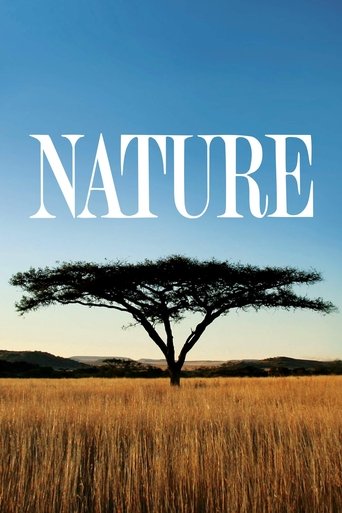
Nature (1982)
Consistently stunning documentaries transport viewers to far-flung locations ranging from the torrid African plains to the chilly splendours of icy Antarctica. The show's primary focus is on animals and ecosystems around the world. A comic book based on the show, meant to be used an as educational tool for kids, was briefly distributed to museums and schools at no cost in the mid-2000s.
-
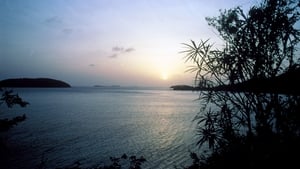
Episode 1 - Cuba: The Accidental Eden
Release Date: 2010-09-26Cuba may have been restricted politically and economically for the past 50 years, but its borders have remained open to wildlife for which Cuba’s undeveloped islands are an irresistible draw. While many islands in the Caribbean have poisoned or paved over their ecological riches on land and in the sea in pursuit of a growing tourist industry, Cuba’s wild landscapes have remained virtually untouched, creating a safe haven for rare and intriguing indigenous animals, as well as for hundreds of species of migrating birds and marine creatures. Coral reefs have benefited, too. Independent research has shown that Cuba’s corals are doing much better than others both in the Caribbean and around the world.
-

Episode 2 - Echo: An Elephant to Remember
Release Date: 2010-10-17Echo, Africa’s most famous elephant, was the subject of many films and the matriarch of perhaps the most studied wild elephant herd in the world. In May of 2009, she died of natural causes. This film is a look back at this remarkable animal through extraordinary footage and interviews with the researchers that cared for and studied Echo and her family.
-
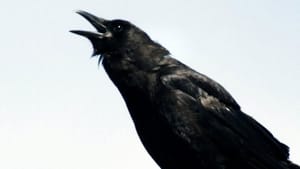
Episode 3 - A Murder of Crows
Release Date: 2010-10-24Although cultures around the world may regard the crow as a scavenger, bad omen, or simply a nuisance, this bad reputation might overshadow what could be regarded as the crow’s most striking characteristic – its intelligence. New research indicates that crows are among the brightest animals in the world. NATURE’s A Murder of Crows brings you these so-called feathered apes, as you have never seen them before.
-
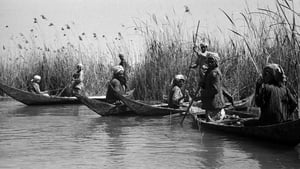
Episode 4 - Braving Iraq
Release Date: 2010-11-07As recently as the 1980’s, Iraq’s Mesopotamian Marshes were reminiscent of the Garden of Eden – indeed, many biblical scholars believe they are one and the same. Fed by the combined waters of the Tigris and the Euphrates rivers, this enormous marshland of over 6,000 square miles dominated southern Iraq. For more than 7,000 years, these wetlands provided a bountiful home for both wildlife and humans. A large population of indigenous people, the Ma’dan Tribes known as Marsh Arabs, had thrived there for centuries. But in the 1990’s, due to political conflict, Saddam Hussein attempted to eradicate them – not through systematic extermination, but by destroying the marshes on which they depended for survival. Massive canals were dug, diverting river water away from the wetlands and towards the Persian Gulf. Huge embankments were built to prevent water from entering the marshes. What had been a green paradise twice the size of the Everglades shrank to less than 10% of its original size. Most of it was transformed into a parched, lifeless desert. The wildlife and the people were forced to leave.
-
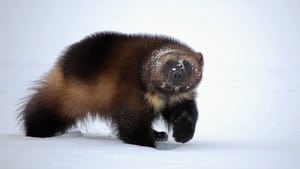
Episode 5 - Wolverine: Chasing the Phantom
Release Date: 2010-11-14Wolverines are among the most elusive creatures on the planet. They seek out the toughest terrain – the most rugged, remote and fiercely raw – and they’ve always been scarce to begin with.
-
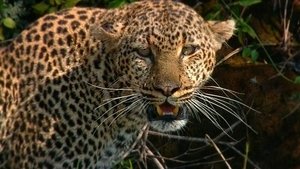
Episode 6 - Revealing the Leopard
Release Date: 2010-11-21Leopards may be smaller than lions and slower than cheetahs, but it is believed there are roughly ten times more of them than lions, tigers and cheetahs combined. How have they achieved this? The key to their success is their cunning, stealth, and adaptability. From South Africa to Sri Lanka, leopards live secretly, clinging to the shadows.
-
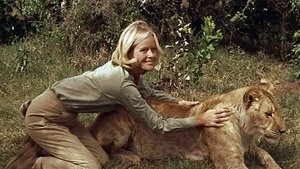
Episode 7 - Elsa's Legacy: The Born Free Story
Release Date: 2011-01-09In 1960, a book written about raising an orphaned lion cub named Elsa and then releasing her back into the wild became a worldwide bestseller and a Hollywood hit. But this retelling of Elsa’s story reshapes the story told fifty years ago, as it really happened and with no fairy tale ending.
-
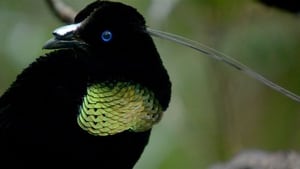
Episode 8 - Birds of the Gods
Release Date: 2011-01-23On the island of New Guinea in the South Pacific lives the most striking and diverse group of birds on the planet. Local biologists and conservationists, Miriam Supuma and Paul Igag, go into the island’s dense forests in their quest to document the mating behaviors of several exceptional and elusive birds of paradise.
-
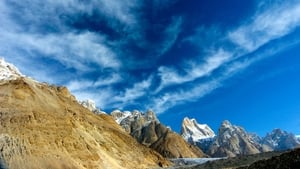
Episode 9 - The Himalayas
Release Date: 2011-02-13Examining the diversity of Himalayan habitats and wildlife, including snow leopards, red pandas, Asiatic black bears, musk deer, snub-nosed monkeys, Tibetan foxes and high-flying birds. Included: how eagles and wolves rely on teamwork to survive; how the blood of bar-headed geese has a special hemoglobin that enables them to fly in the thin air of the Himalayas. Also: the mountains' valleys, which are home to rain forests that conjure Shangri-La.
-
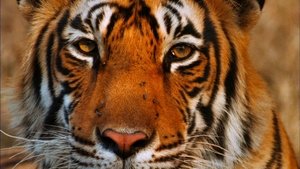
Episode 10 - Broken Tail: A Tiger's Last Journey
Release Date: 2011-02-20Wildlife filmmaker Colin Stafford-Johnson tracks the trek of Broken Tail, a 2-year-old tiger that disappeared from Ranthambore National Park, a tiger reserve in India, and was killed by a train 100 miles away. Their horseback journey takes them across Rajasthan, where they witness how India's historical and contemporary cultures are linked to tigers; introduces them to a poacher; and takes them to Ramgarh sanctuary, a former hunting lodge. They also share favorite memories of Broken Tail.
-
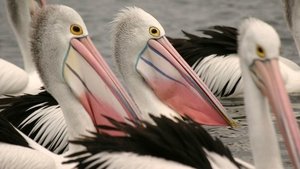
Episode 11 - Outback Pelicans
Release Date: 2011-03-27The Australian pelican is built for long-distance travel. With a light skeleton and a wingspan of over eight feet, it can be airborne all day and deep into the night. But what exactly triggers their journey? How do they find their way? NATURE looks for answers to questions researchers are only now beginning to unravel.
-
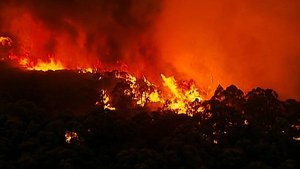
Episode 12 - Survivors of the Firestorm
Release Date: 2011-04-17In February 2009, conditions were ripe for wildfires in the state of Victoria in southeast Australia. Relentless heat waves, seemingly endless drought, and arid winds sweeping in from the outback had left the countryside tinder dry and braced for the worst. Then, on Saturday, February 7, Victoria went up in flames; and raging fires engulfed everything in their path. By the time the fires subsided, 173 people had lost their lives, over one million acres of mountain ash forest had been destroyed, and countless animals had perished. The overwhelming firestorm was one of the worst in the country’s history, and came to be known as Black Saturday. Survivors of the Firestorm follows the phoenix-like story of Victoria’s wildlife, the fall and rise of the great mountain ash forests and all that dwell within them, and the extraordinary capacity of a damaged natural world to bounce back.
-
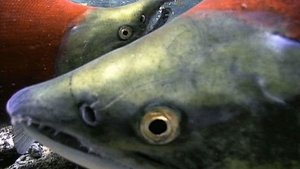
Episode 13 - Salmon: Running the Gauntlet
Release Date: 2011-05-01This film investigates the collapse of Pacific salmon populations and the desperate efforts to save them: Our once great runs of salmon are now conceived in laboratories, raised in tanks, driven in trucks, and farmed in pens. In its exposure of a wildly creative, hopelessly complex, and stunningly expensive approach to managing salmon, the film reveals one of the most ambitious plans ever conceived for taking the reins of the planet.
-
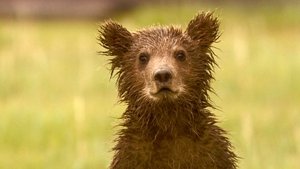
Episode 14 - Bears of the Last Frontier: City of Bears
Release Date: 2011-05-08Chris Morgan sets up camp at a remote spot in the heart of Alaskan wilderness, alongside the largest concentration of grizzlies in the world. It is June in the Alaska Peninsula. The sun sets well into night and bears are taking advantage of the long days to feed, mate, and raise new cubs. Morgan tracks their progress as they feast on the riches of the season and re-establish the complex hierarchal social dynamics of bear society. Along the way, he experiences close encounters with bears, observing brutal battles among males during mating season as well as tender moments between a grizzly mom and her cubs.
-
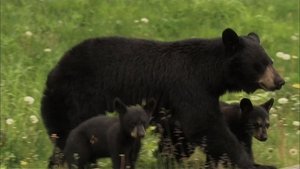
Episode 15 - Bears of the Last Frontier: The Road North
Release Date: 2011-05-15Chris Morgan explores the world of black bears caught in the crossroads of urban development in Anchorage and the wilderness. This is a new normal for bears and for their human neighbors. Some bears are so comfortable living in urban surroundings that their primary habitat is a golf course. In residential areas, bears frequently raid garbage bins and birdfeeders for easy snacks. But these behaviors are less than ideal for bears and residents alike. Morgan heads north out of Anchorage to Denali National Park, where the mountains loom over treeless plains and bears get by on a diet of thousands of berries a day. The grizzlies share the enormous park with foxes, wolves and moose — and with one intrepid bear biologist and his team. Morgan continues his journey north on a bone-shaking, 610-mile motorcycle journey from Denali to Prudhoe Bay along the only Alaskan highway to reach the Arctic. Prudhoe Bay, a once pristine area at the edge of the Arctic Ocean, has been changed forever by the oil industry.
-
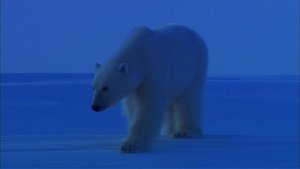
Episode 16 - Bears of the Last Frontier: Arctic Wanderers
Release Date: 2011-05-22Chris Morgan travels to the far north of Alaska, the tiny North Slope town of Kaktovik. It’s early November and winter is coming on. But each year, the polar bears struggle for extended periods on dwindling fat reserves, waiting for the opportunity to hunt on sea ice that takes longer to freeze. In early spring, Morgan joins local hunters in Barrow, the northernmost city in Alaska, as they go out on their own hunts, facing some of the same challenges as the bears. In late spring, Morgan travels to the North Slope of the Brooks Range, where countless thousands of caribou cover the ground for miles. The grizzlies are waiting for them, as they have for thousands of years.
